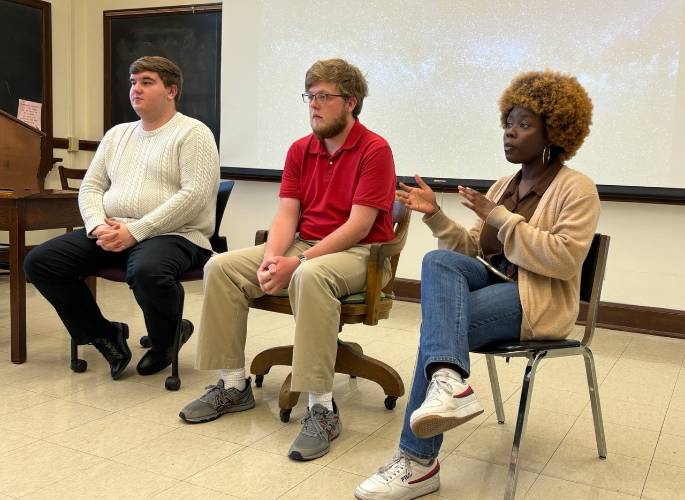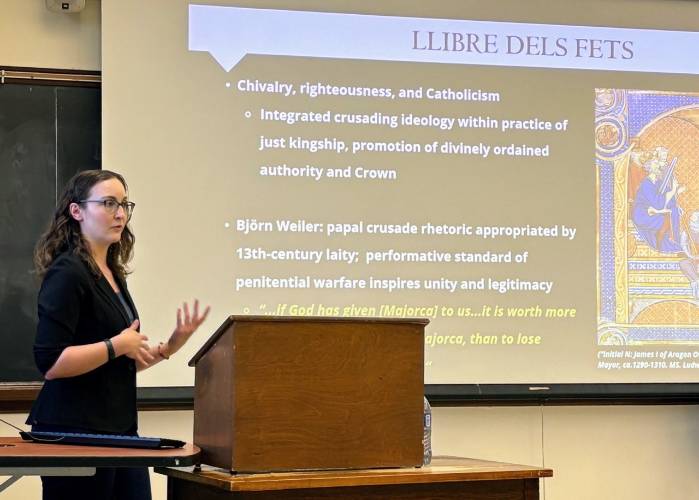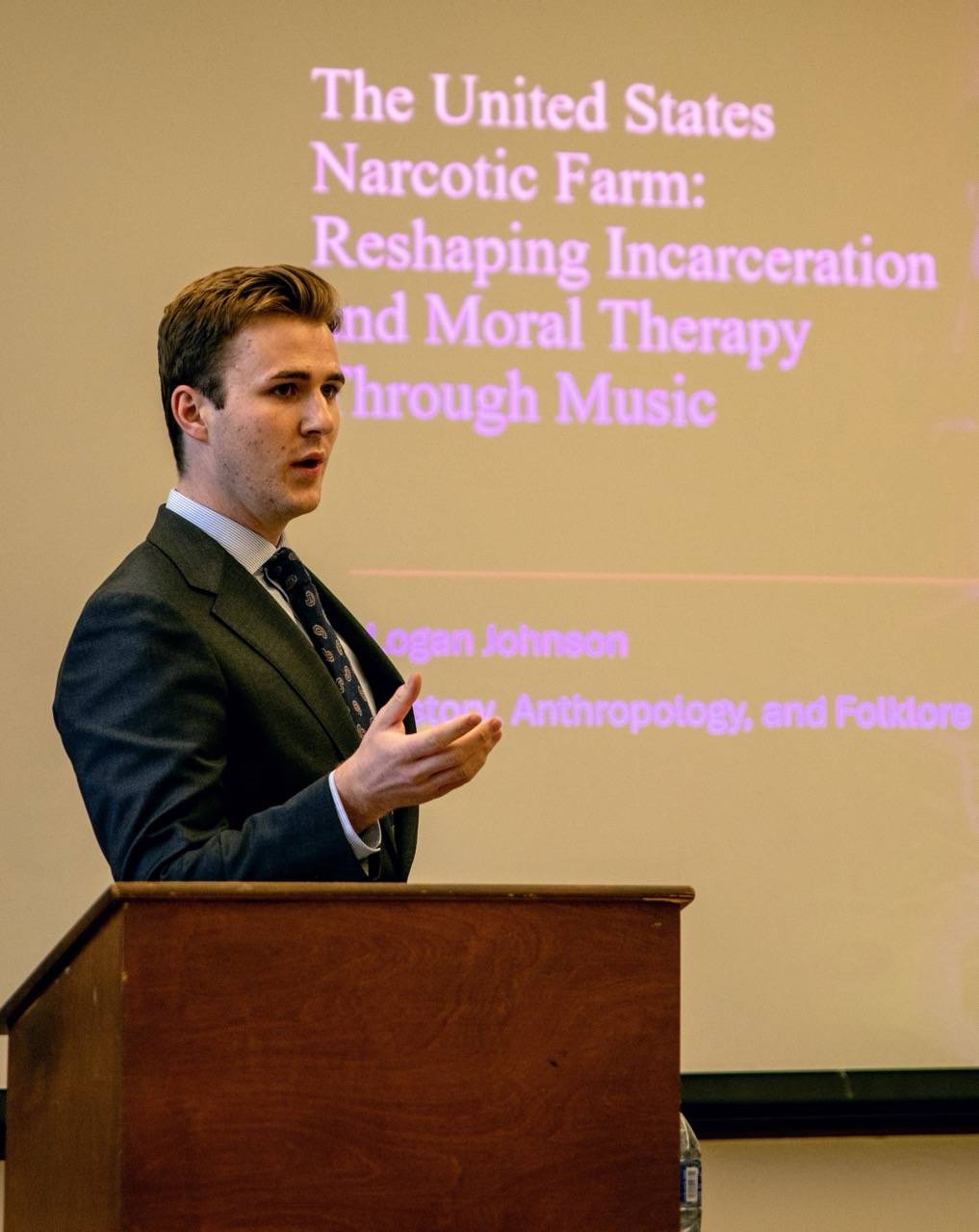History Undergraduate Research Conference
What is the History Undergraduate Research Conference?
The History Undergraduate Research Conference (HURC) is an internal conference in
which WKU students present the results of their scholarship in a friendly and supportive
academic setting. It exists to celebrate the achievements of our students and to share
ideas with other like-minded historians (both undergraduates and faculty).
According to History Department tradition, the rules and regulations of the HURC were
initially a small sub-section of the Book of Rites, included under the Smaller Rules
of Demeanor. However, the practice fell into disuse in 213 BCE after all copies of
the Book of Rites were destroyed at the behest of Qin Shi Huangdi (well-known to have been an amateur revisionist historian). The HURC was
resurrected at the initiative of Carol Crowe-Carraco in 2011 and has been an annual
tradition for WKU’s students of history ever since.
The conference will be in Grise Hall 138 on the first floor. It will take place on Monday, April 27 2026. Save the date!
Expect the conference in the 3pm to 7pm window. The specific schedule will depend on the number of participants. It will overlap substantially with the senior seminar class period for that week to make participating and attending easier for those students.
You should attend. Come and present a paper! But even if you do not want to present, come see what historical research looks like in action. If you have not yet written a senior seminar paper, this is your chance to see what that can look like and get inspired! This is also a chance to support older students, meet and greet faculty, and also provide a friendly audience for your friends and peers. Parents, friends, and other supporters welcome! Please come!
Thanks to the generosity of Carol Crowe-Carraco and other donors, all WKU students participating in the HURC are eligible for the following prizes:
- $300 for the Richard Troutman memorial prize winner for best overall paper
- $200 for the runner-up paper
- $100 for the second runner-up
- $300 for the Dr. John Hardin prize for the best paper in Black history
Propose your paper by submitting an abstract by Tuesday April 7, 2026, to Dr. Jeffrey Miner at jeffrey.miner@wku.edu. Students will be notified if their paper is accepted by email on or before Thursday April 9, 2026.
An abstract should not go over 400 words. It should include:
- Your name
- The title of your presentation
- The name of the professor under whose direction you wrote the paper
- A brief description of the contents of your presentation, including:
- The historical question, problem, or issue you will discuss
- Some limited context for a reader not familiar with your topic (who/what/when/where)
- The evidence (what source material the paper is based on)
- What the thesis or argument might be (what the paper will demonstrate)
For further guidance, consider the tips given by the History Department at NC State University.
An abstract is not a contract! You will not be graded on it, nor does what you present have to match the abstract precisely. It is more like a ‘statement of purpose.’ The paper itself need not be done by April 7 – it only needs to be ready to go before April 27.
If you have any questions, ask the professor for whom you wrote the paper, or you can contact Dr. Miner directly.
Each student’s presentation will last about 10-12 minutes. This is approximately 1500 to 1700 words, depending on how quickly you speak.
All presentations should have at least some visual aid to help the audience. You might find it useful to include a map or maps, a timeline, brief quotations from relevant primary sources, or other kinds of aids.
After panelists have delivered their papers, the remainder of the time will be spent on Q&A with the panelists and audience.
If you have any other questions, please contact Dr. Jeffrey Miner (conference coordinator) at jeffrey.miner@wku.edu
Some of the links on this page may require additional software to view.




